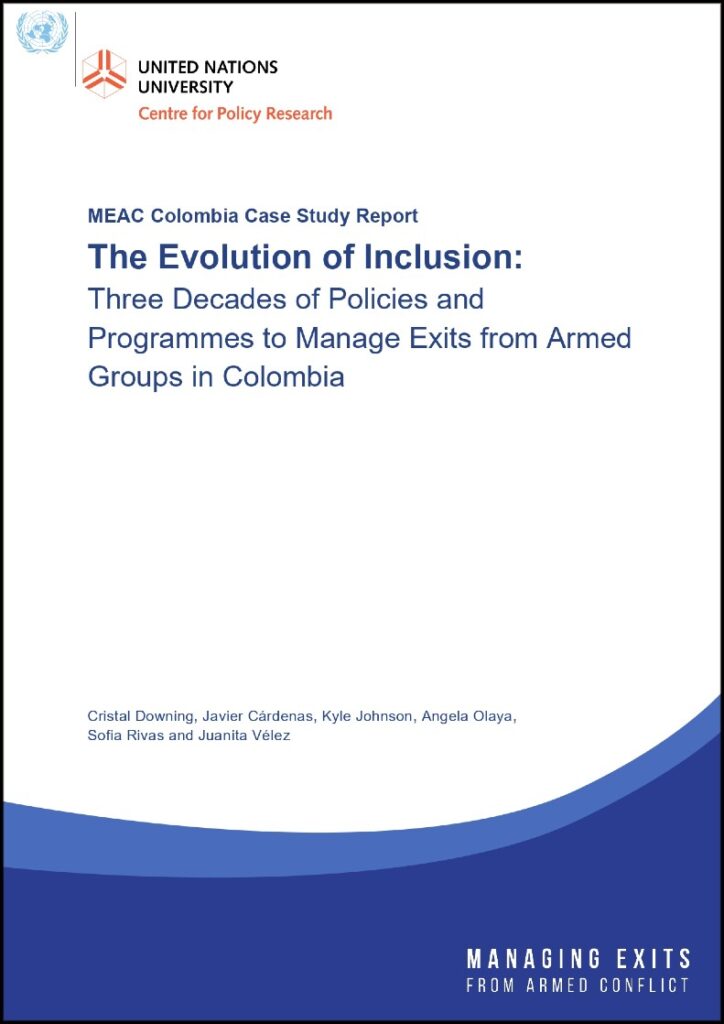The objective of this report is to provide a history of disarmament, demobilization, and reintegration (DDR) policy and programming in Colombia and derive lessons learned that can be applied to other contexts.
This report traces the shifts and policy and programmatic outcomes that have shaped Colombia’s approach to DDR today, paying special attention to how international and national factors (including the work of the UN) have influenced the design and implementation of relevant interventions in Colombia; how policy and programmatic decision-making have served the overarching goal of conflict resolution in the country; and what the impact of these factors and decisions has been on children, women, and ethnic minorities within the population of individuals formerly associated with armed groups.
It draws on an extensive literature review and more than 15 interviews conducted between November 2020 and August 2021 with stakeholders involved in the design and implementation of relevant interventions at different points of Colombia’s history, to better understand the evolution of Colombia’s approach to disengagement policy and programming.
This publication can be downloaded from the UNU-CPR website in English and Spanish
Citation: Cristal Downing et al. (2021) "The Evolution of Inclusion: Three Decades of Policies and Programmes to Manage Exits from Armed Groups in Colombia", United Nations University, New York.
